Transborder Immigrant Tool Series: Learn Desert Secrets From Bedouins and Indigenous Travelers
The third poem in "The Desert Survival Series/La serie de sobrevivencia del desierto" points readers toward ancient lessons for survival in the desert at the U.S.-Mexico border.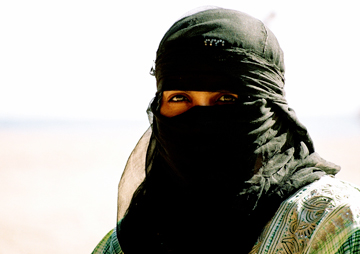 "Just before sunrise, Bedouins turned over half-buried stones in the desert to catch the dew that the night's coolness had condensed on the stones' surfaces," begins the third poem in "The Desert Survival Series." (Kashfi Halford / CC BY-NC 2.0)
"Just before sunrise, Bedouins turned over half-buried stones in the desert to catch the dew that the night's coolness had condensed on the stones' surfaces," begins the third poem in "The Desert Survival Series." (Kashfi Halford / CC BY-NC 2.0)
The Transborder Immigrant Tool is a GPS cellphone safety-net tool for crossing the Mexico-U.S. border. It was developed by Electronic Disturbance Theater/b.a.n.g. lab in 2007 by artists Micha Cárdenas, Amy Sara Carroll, Ricardo Dominguez, Elle Mehrmand and Brett Stalbaum, in conjunction with CALIT2/Visual Arts Department/University of California, San Diego/Program in American Culture, Latina/o Studies/English Department/University of Michigan, Ann Arbor.
Poet Amy Sara Carroll wrote a series of 24 poems, titled “The Desert Survival Series/La serie de sobrevivencia del desierto,” which were uploaded onto cellphones equipped with simple compasses and interfaces. Each poem is a form of lyrical advice that provides readers and listeners with tools for every hour of a day spent in the pernicious borderlands between the U.S. and Mexico. Truthdig will publish each of these poems in both Spanish and English over the next few weeks in our Poetry section, accompanied with bilingual audio recordings by various contributors to the project. To read the first and second poems in the series, click on the hyperlinks. For more information on the project, watch the video presentation below.
The third poem in “The Desert Survival Series/La serie de sobrevivencia del desierto,” read in English by Amy Sara Carroll and in Spanish by Iván Chaar-López.
3.
Just before sunrise, Bedouins turned over half-buried stones in the desert to catch the dew that the night’s coolness had condensed on the stones’ surfaces. Indigenous travelers in the Mexican-U.S. corridor searched the broad leaves of yucca and agave. Rainwater collected at each plant’s base–the leaves’ apex–remaining there up to a few days after a summer or winter shower. Proceed from the simple premise: The desert caches water in unlikely places that it resists divulging. Do not expend all your energies searching for its secret stashes, but likewise do not assume that its pockets of moisture are nonexistent. Restrict your water reconnaissance to early or late in the day when your liquid net-gain will outweigh the perspiration you expend. A thirst is seldom quenched; it morphs to reappear on the horizon. Meanwhile, the desert reflects the sun back like a mirror. You are caught in that pair’s uneven, inconsummate exchange.
Justo antes del amanecer, los beduinos volteaban piedras semienterradas para atrapar el rocÃo que el frÃo de la noche habÃa condensado en su superficie. Los viajeros indÃgenas en el corredor de Mexico-Estados Unidos buscan las anchas hojas de la yuca y el agave para abastecerse de agua. El agua de la lluvia se acumula en la base de cada planta–el ápice de las hojas–permaneciendo ahi hasta unos dÃas después de una llovizna veraniega o invernal. La premisa a seguir es simple: el desierto acumula agua en lugares inesperados que resiste divulgar. No agote sus energias buscando sus escondites secretos, pero igualmente no presuma que sus bolsillos de humedad son inexistentes. Limite su búsqueda de agua al principio y al final del dÃa de manera que el liquido que encuentre sea mas que el sudor que transpire al buscarlo. La sed es rara vez saciada: se transforma para reaparecer en el horizonte. Mientras tanto, el desierto refleja el sol como en un espejo. Usted esta atrapad@ en el medio de este intercambio desigual e inconsumado.
Independent journalism is under threat and overshadowed by heavily funded mainstream media.
You can help level the playing field. Become a member.
Your tax-deductible contribution keeps us digging beneath the headlines to give you thought-provoking, investigative reporting and analysis that unearths what's really happening- without compromise.
Give today to support our courageous, independent journalists.
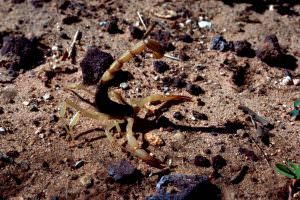
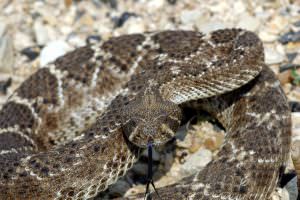
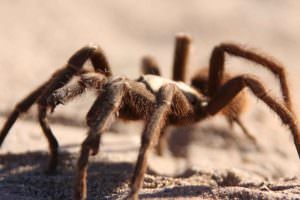
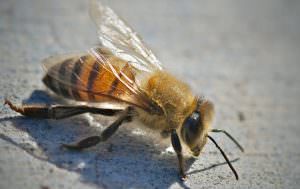
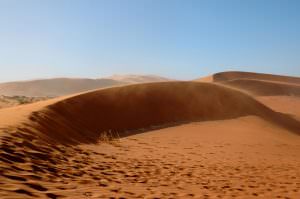
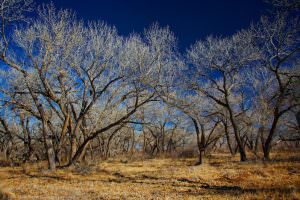
You need to be a supporter to comment.
There are currently no responses to this article.
Be the first to respond.